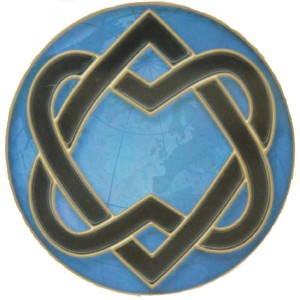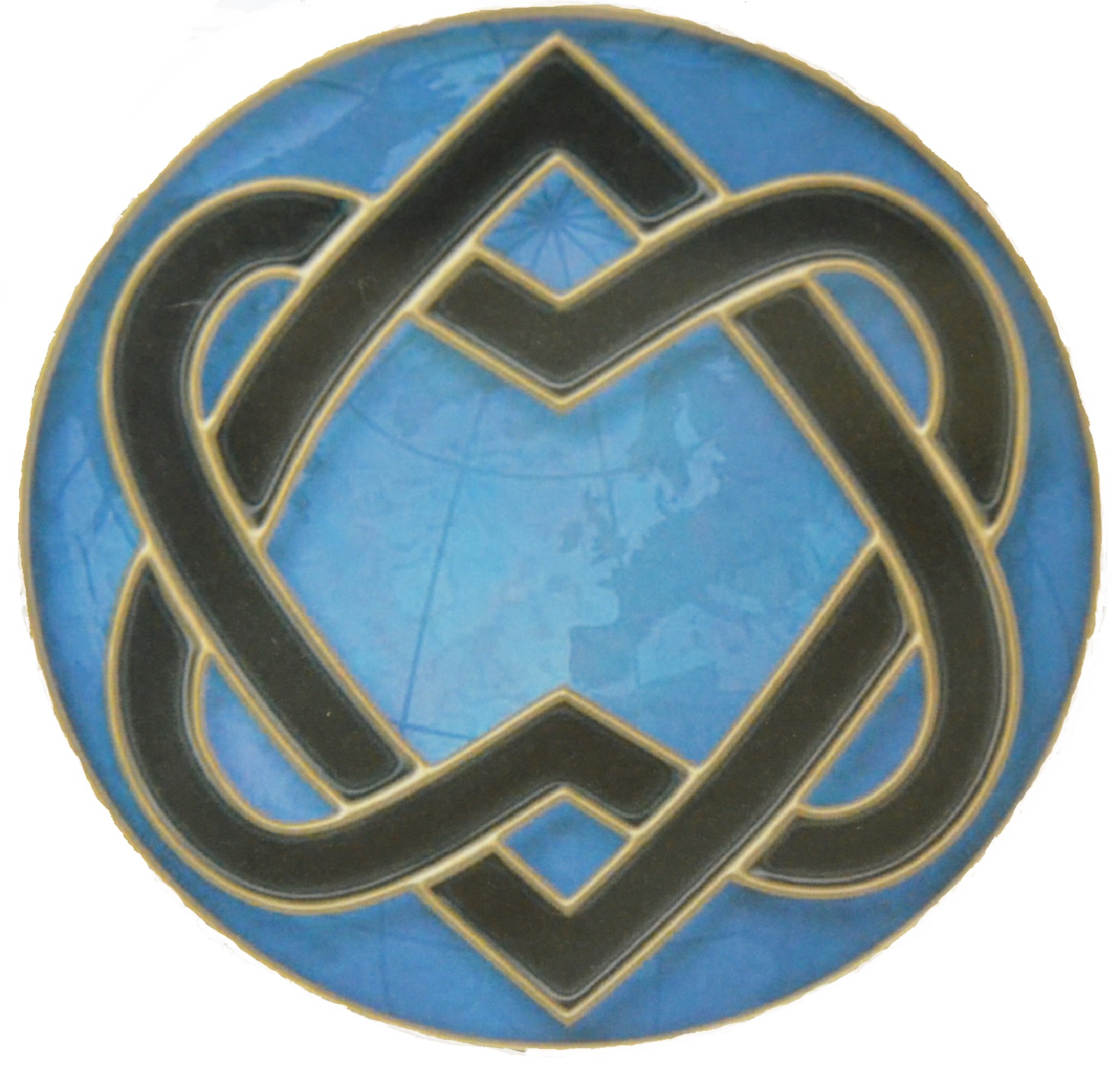Episodes

Wednesday Apr 22, 2020
Wednesday Apr 22, 2020
When Aaron's sons Nadav and Avihu suddenly die by fire while offering the first sacrifices, we have an odd series of verses that seem to suggest --on the surface-- that God has glorified Godself by killing them and now God demands that Aaron show no grief for his own sons also for the greater glory of God. What? Do the verses really say this? A closer look (helped by the commentator Sforno), shows us what's really going on: there are times when we glorify God by choosing to do our jobs (when lives are at stake) over allowing ourselves to feel our feelings of grief, of anxiety, or fear. What seems so unfeeling of God, so self-glorifying and cruel, comes alive to us now: we are only told to postpone our fears, our emotions, our worry, our wailing, our mourning, when we find ourselves (even unbidden) in the chain of operations meant to save lives. God even bestows a personal word of loving care to Aaron: don't turn to the bottle, another message so important at this time.

Sunday Apr 12, 2020
Sunday Apr 12, 2020
In this teaching immediately following the Seder(s), I follow through the commandment to see ourselves as if we experience(d) the Exodus story at this profound time. I explore how the food of Passover is restoring our humility, our connection to our humble (poor) roots, how the moral dimensions of money are now exposed to create, when we are at our most honest, a compassionate human interaction over returning or paying funds --just as God brings grace (at the exact moment of the 10th plague) to the interaction of money between Israelite and neighbor, and finally the fact that the text never says the plague only affects the guilty and Israelites are spared. Our overlapping Zoom shivah services belie that, and now we experience that the text never says that: we bring the bones of our dead with us until the future.

Saturday Apr 04, 2020
Are We Experiencing Apocalyptic Symptoms? The "Reset" Revealing What Had Been Hidden
Saturday Apr 04, 2020
Saturday Apr 04, 2020
We are experiencing synchronicities with the Torah: the locust plague, the sheltering in place of the 9th and 10th plagues, the 10th plague which is simply plague itself, the Torah telling the Nasi (president) to make expiation for his sin, now the Seder -- blood on the doorposts of the 10th plague so similar to the red cross painted on the doors of homes quarantined during centuries of European plague-- with mathematical models predicting infection and death during the Pesach holiday as the Seder commemorates sheltering in place. Are these signs? What is apocalypticism? Is it the dubious book of revelations, wars of Gog and Magog, the end of times, some infantile Nostradamus notion of Bible prophecy,? Or could it be something different, hinted at in the final Pesach-preparation (Shabbat Hagadol) haftarah of Malachi (predicting ruin if we aren't caring for those at or below the poverty line) and suggested by the Torah curses themselves: signs that the human societal structure we consider totally normal is off and therefore can crumble at a plague (which shows the weakness of our man-made social system)? Is what is happening "revealing" ("apocalypse") how broken and arrogant the system we take for granted truly is, and how it's the poor who end up suffering the most?

Monday Mar 30, 2020
Monday Mar 30, 2020
The beginning of Leviticus spells out a fourfold process of bringing order to society and keeping at bay the threat that chaos can invade and tear our system to shreds. The fourfold process involves the expiation of sin, a process that adds two middle steps of relationship to God and to oneself that is often missing from our typical American formulation. I am used to the model that skips the whole notion of sin: rather, society works because if you break the rules you get punished, and that fear of being caught --along with a system of punishment-- brings Order. The two middle notions that the Levitical process adds in between action and punishment is "consciousness that one erred unwittingly" and "realizing that one's erring has consequences on the anonymous others within the System." That allows one to "take in new information" and then GROW. Those are the middle steps of relation with God. It's only, as Leviticus chapter 5 explains, when you take in new information but you are so attached to your own ego that you don't witness to it, that you arrive at the step of punishment. (For example, if you receive information that you previously underestimated the virus or need for types of precautions or measures, do you admit the consequences of your unwitting sin prior and then witness to this new information, or choose your ego over God?] It is the Levitical explanation of unwitting sin and then expiation through growth and acknowledgement of consquences on others that our political leaders are avoiding today. Instead, our Nasi's (President, some governors and congresspeople) are attached to their own sense of perfection, they deny God, refuse to grow, and refuse to witness to new information, fostering chaos over order. What plagues do practically and theologically is to explose the weaknesses in the System, and allow chaos in. Our Nasi is inviting it, just as the Pharoah narrative describes and the Levitical sacrificial system explains.

Tuesday Mar 24, 2020
Tuesday Mar 24, 2020
In this Zoom presentation, I share ideas for creating new balance ("Tiferet") in reconstructing our home systems when conflict, a sense of failure, miscommunication, mess, and frustration can arise when many are sharing a small space. There is a handout that goes with this called "Shalom in the Home During Social Isolation" which can be found by clicking here:
https://docs.google.com/document/d/1-0R5vm8WKcDGYks4OIvUxGyBh0nI3Hlo-Tvcjww2umw/edit?usp=sharing
or
https://www.dropbox.com/s/o7qypb5inmaplv4/Shalom%20in%20the%20Home%20During%20Covid%2019.pdf?dl=0

Saturday Mar 14, 2020
Torah Ideas for Rethinking our Relationship to Time In Our Present Crisis
Saturday Mar 14, 2020
Saturday Mar 14, 2020
The first parashah that accompanies this novel period of social distancing has lessons to teach us in how to best use the time we now have returned to us.
The parashah begins with the command that a (naturally antimicrobial) copper-brass laver of water is placed in the central courtyard of the tabernacle and that the Levites must wash their hands between every interaction of service lest they die. Synagogues today incorporate the adapted features of the Tabernacle with the exceptions of the incense and the laver. We have restored the laver this week with the large bottles of Purell. How apropros.
Ki Tissa continues with the completely out-of-order story of the Golden Calf. Why doesn't this pivotal story about idolatry -- idolatry is when we put our money, time, and spiritual resources into the wrong areas-- occur way back when it actually happened, before the revelation at Mount Sinai?
Because we needed what has happened since, all the activities of building the portable sanctuary, the practices of renewal during Shabbat, the visions of divine Service of the Levites... to give us a context for understanding what the opposite of idolatry is.
And these activities give us ideas for how to use this time of crisis for a renewal of our relationship to time.

Monday Feb 24, 2020
Monday Feb 24, 2020
One of the halakhot of the Torah service is "Ein Midalgin ba-Torah," one may not skip [words, verses, or chapters] during the Torah reading." Underlying this strict practical rule is an important value: we must pay attention to all verses of the Torah, even uncomfortable ones, like those about slavery. In this sermon, I relate this principle to Exodus chapter 21, which includes rules about slavery rather than eliminates it; and then I look at a Bible that actually did skip verses, the so-called "Slave Bible." I will leave it to the listener to hear which verses of chapter 21 (and elsewhere) were included as appropriate for those enslaved by the British to fund the empire through sugar plantations, as I also compare the phenomenon to the 1619 Project's recent article "They sold human beings here."

Monday Feb 17, 2020
The Story of Five Puns: Making Community at Mount Sinai
Monday Feb 17, 2020
Monday Feb 17, 2020
In Exodus chapter 19, there is a swirl of mixtures and transitions of singulars and plurals in the Hebrew that don't translate into English. Here, I take you through them --even for those with no Hebrew knowledge-- and show how they tell the hidden meaning of what "community" really means at our "marriage covenant" to God at Mount Sinai. How do we go from our Jewish identity as associated with family and heritage and affiliation [the words "House of Jacob" and "Children of Israel" and relating to the "Elders of Israel"] to a Jewish identity as a community [which proceeds from the former phrases to the intermediary stage of "each individual of the nation" and finally to the phrase "nation" by itself? They are very far from the same thing, as Exodus 19 shows us. And then how does the Sinai Revelation reinforce the pathos of the situation by immediately reverting from God's "voice" [kol] to the revelation of the Decalogue as "voices" [kolot]? How do we put aside ourselves as kol --a homonym of two different words, one for "each individual of [the nation]" and "voice [of God"-- as an individual hearing the voice God sends to us but not to others-- in order to be a single nation?

Sunday Feb 09, 2020
Sunday Feb 09, 2020
What may just be the oldest section of the entire Bible? The Song of Deborah (in the Book of Judges), the ancient altar song about the prophetess Deborah uniting the Israelite tribes to attack and defeat the Canaanite king at Hazor, which is a archaeologically verified. She was known as "The Mother of Israel." As Jews, we do not have a Father of our Country, we have the Mother of our Country. What is her story arc? How would it be taken today? I put this powerful truth (that she is real, that the song describes real events, that we actually have the history of the Mother of our Country) up against the reflections of actress Brit Marling (of the TV show "The OA") in her piece in the New York Times called "I Don't Want to Be the Strong Female Lead" in which she reflects on the absence in our culture of a genuine female story arc that is strong, real, and not emerging from a male stereotype. I offer Deborah as our answer. [Footnote: When I teach that Deborah tells Barak she will get the credit, I am going with the plain meaning in that verse, not the narrative surprise (perhaps a later addition) later on that it turns out to be Yael.]

Monday Feb 03, 2020
"What is God?" Part Two: Locusts, God, and the Fallacy of Individual Control
Monday Feb 03, 2020
Monday Feb 03, 2020
The planet is in the midst of the worst locust plague in 70 years. Why locusts as the plague beginning Parashat Bo in Exodus? What do they signify? Here I continue the implications of the theology of God's name explained in the previous podcast. Those implications are that in order to address the truth of interconnectedness of our system, we must act collectively, and not live with the illusion that individual actions can combat the illnesses in our system. Individual actions, while admirable, do not cure cancer, solve poverty, heal the environment: the locusts teach us that thinking an individual can stop a locus plague shares in the same illusion Pharaoh had, that an individual can control the system. That is the opposite of recognizing God. That's the theological message of the plagues, and of their implications.

